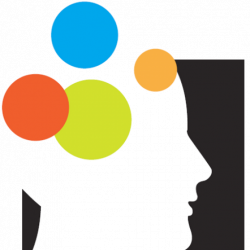By: Maheep Chawla, Christine Seo, Muthaira Abid

Preferred pronouns: She/her/hers
Year: 3
Major: Psychology
Hometown: Mumbai, India
Fun fact: I have had three separate *embarrassing* instances when I’ve narrowly escaped getting frostbite.
Could you give us a short overview of your honours research project? Starting off with your research topic?
I’m currently working with Dr. Steven Heine’s Culture and Self lab. I’m working with Anita Schmalor, a PhD student. We are working on a project to identify how income inequality relates to feelings of inferiority, particularly how income inequality and socioeconomic status interact with each other to influence feelings of inferiority in individuals. Our first hypothesis was that lower socioeconomic status predicts feelings of inferiority and as the socioeconomic hierarchy increases, feelings of inferiority decrease. Our second hypothesis was that this relationship is also impacted by income inequality: in countries where there was high income inequality, the difference between lower and higher SES people, in terms of their feelings of inferiority, would be more exaggerated. We tested this by using different scales of operationalization of inferiority by measuring feelings of shame, guilt and self efficacy on our sample population, which was based in the United States.
What sparked your interest in your research topic?
I joined the lab a year ago and I’ve been working as an RA with Anita, who specialises in income inequality. After working with her on a few projects, I grew really interested in the topic. Coming from a country like India where income inequality is a major problem, I find this topic to be personally relevant as well. I started reading literature on my own time and approached Anita to collaborate on this research project.
Was there anyone who inspired you to look into this topic?
Yes! Anita Schmoler.
What was your favourite part of the process?
Inferiority has not been operationalized into a scale before. So I guess my favourite part was coming up with different scales that we could use for the project. It is something we learned early on in PSYC 217 – that you can operationalize a variable. I think this was my first experience having to come up with multiple operationalizations and doing research into different scales I could use. It was really fascinating to me that there is so much that can stem from a concept like inferiority.
I was surprised that there isn’t any scale to measure inferiority. Because inferiority is part of several psychiatric illnesses.
Like you said, it is so involved in so many mental health conditions. I guess as a concept of its own, as far as I know, there has not been a concrete scale made.
I can imagine how much work it takes to work on a research project in the honours program – what is one thing that was hard about it and how did you manage to overcome it?
I think one of the hardest things is time management. Before, I would structure my day to allocate some hours to work, but now I have to more concretely structure my day, which is something I did not have to do in the past. So I got myself a planner and it has been my baby ever since. That is the way I overcame it. It is still a struggle from time to time, but it is one of the things I feel that I can now approach with much more confidence.
How many courses did you take while you were working on your project?
It is recommended that you do a full course load, but because when I came into school I already had a bunch of transfer credits, I’m currently doing 4 courses per semester. I felt that I needed this to keep myself on track. All of the psychology courses offered at UBC are all so exciting – I wanted to take all of them!
What was it like conducting research during a pandemic? You did this project this past term right?
Drawing from my experience working on my honours project and from volunteering in other research labs, it definitely is hard to conduct research during the pandemic. I feel that, at least the labs at UBC, have transitioned the work and experiments online well, but it still is tough. Because my study is correlational, I knew it would be online regardless, so it was not too difficult.
Is there anything you can share with us about the results that you found? What trends/conclusions did you observe?
The data from the first study are still being analyzed as there are several scales we used to operationalize feelings of inferiority. By the end of this month we should have a better idea of the results, based on which we will be structuring a second study.
Have you had the chance to compare your results with other research in this field?
Surprisingly, there has been research on how socioeconomic status predicts inferiority feelings but there isn’t anything looking at income inequality affecting inferiority feelings.
What will you be doing with your data and conclusion now? How do you plan on presenting it?
We are planning on doing a second study which will look more at concrete measures of inequality. The GINI coefficient measured income inequality in certain regions – and using this measure we want to see if there is an interaction of income inequality as opposed to looking at perceptions. As I am part of the honors program, I am also required to present my research at PURC along with my honors cohort. My written report for the honors program which is like a journal article will also be read and graded based on my writing.
How do you see the results of your study being applied in the real world?
Income inequality in between genders and otherwise is something we see a lot across countries. This topic has been studied in relation to physical and mental health. I think my research will tie into the mental health aspect, as you may know feelings of inferiority play into mental health conditions in terms of cognitive processes. Beyond that, in my opinion income inequality is a very important topic considering current global circumstances.
If you could do your study again, what would you do differently and why?
I would have done more preliminary research before starting out instead of just learning as I went along.
What course(s) do you think were most helpful in gaining background knowledge about your research topic?`
Psyc 217 (Research Methods) is great and it inspired me, but I would say I did not really understand if I wanted to do research until I took Psyc 218 (Analysis of Behavioural Data). Statistics is something that is involved in research continuously, that’s why I would say I found Psyc 359 (Advanced Research Methods in Behavioural Sciences) also particularly helpful.
How has being in the honours program helped you grow, both personally and professionally?
I used to feel unsure of myself and was much more anxious than I am now. My first few experiences in the labs, I remember being very nervous about this new field and I did not give myself a leeway to be able to make mistakes. Now with the honors, I started realizing that making mistakes is also a part of research and the process. Moreover, being in the honours program affirmed my interest in research and meeting people who have different aspirations that have shown me the career scopes beyond research in the program which in turn has helped me to identify my goals.
Tell us about how you stay organised and manage your time while doing a directed studies project. How do you prioritise? How do you motivate yourself?
Besides my planner, I am constantly on the hunt for study methods I can use. I actually became obsessed with the Pomodoro technique recently. Using this study method – you study for 25 minutes and then you take a 5 minute break. It helps me to make sure that I focus on what I am doing and I’m not distracted by my phone. I find it better than going into a study marathon, because then I get so exhausted mentally. The 5 minute break is like a reward and ensures I do not drain myself while studying.
We asked about the challenging part of the project. Could you maybe tell us what was most rewarding?
I think there would be two things that were rewarding for me. First, my favourite part of the process was doing the literature review. I had fun diving into the context and finding out so much more about the field such as how researchers have different approaches to phenomenons. Additionally, compiling all the research I read gave me satisfaction. Secondly, I would say the most rewarding thing was to see my project come together, from the first questionnaire I worked on to finding different scales and seeing to up and go live was really fun. I could see how my literal view was playing out and everything.
How do you network within the psychology community, and where have you made your most valuable connections?
For me, I think it’s the labs that I joined. I got to meet a lot of different RAs who were from different labs. It was also nice to have people to explore UBC’s research opportunities with – when we started out, many of us had no clue about what we wanted to do. I think that was a great way for me to meet people who have the same interests as me and sometimes even not. For example, I got to interact with many students from other fields such as integrated sciences; so the labs actually turned out to be a platform for me to broaden my horizons within the UBC community as a whole.
What are your other interests outside of Psychology? Are you a part of any clubs or teams?
I am also working with the mental health team for project Aurora, a nonprofit organization. You guys may have heard of Campus Lightbox. We are conducting surveys to understand mental health experiences of students on campus, both undergrad and grad students.
What do you see yourself doing in 10 years time?
This is a very daunting question! I see myself doing a PhD, although I am unsure about which field I wish to pursue. It is very open ended right now!

